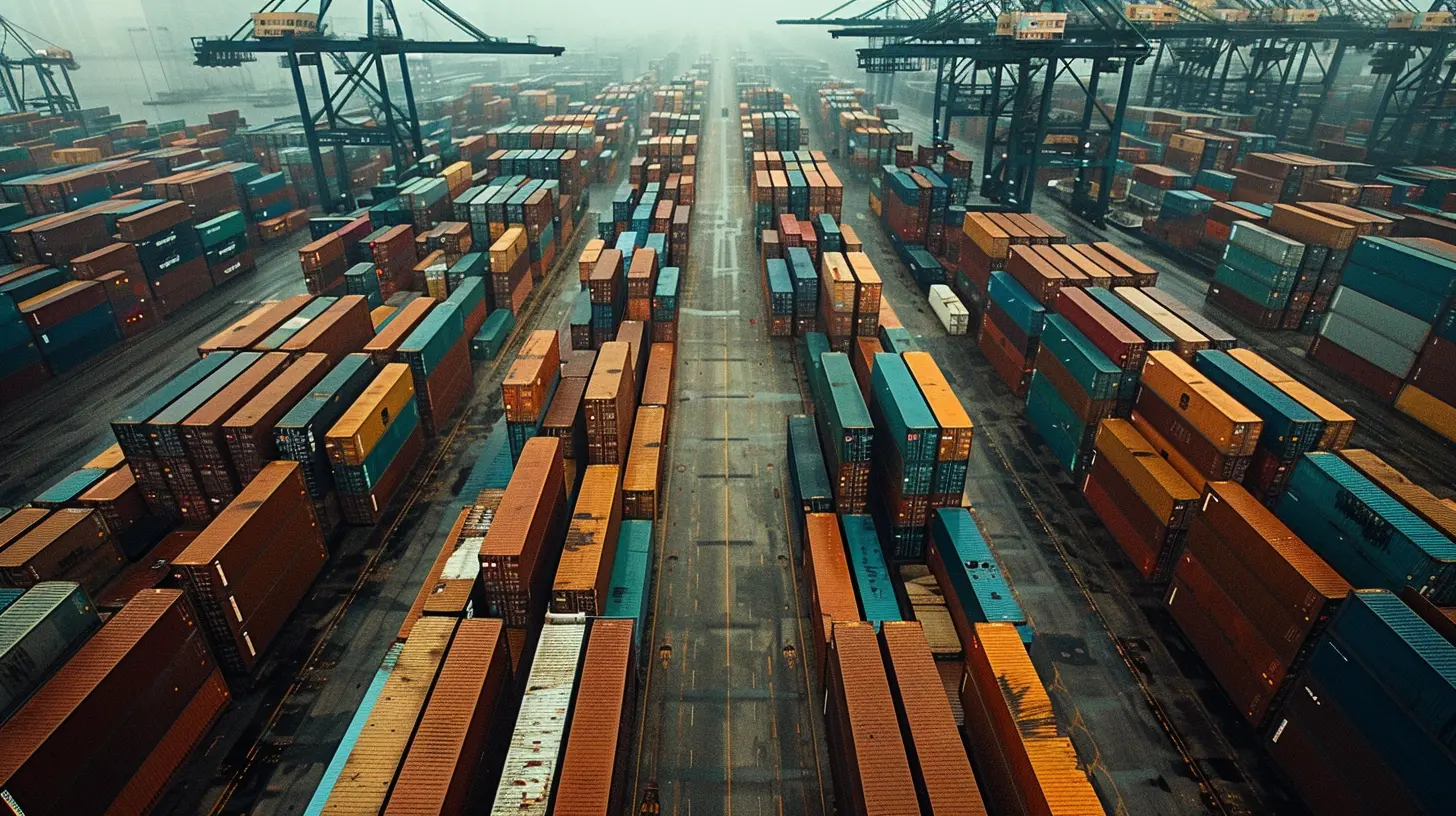17 March 2025
Let’s face it—running a supply chain isn’t exactly a walk in the park. With so many moving parts, unexpected hiccups, and ever-growing customer expectations, it can sometimes feel like keeping everything in sync is about as easy as herding cats. But here’s the good news: advanced analytics is changing the game for supply chain management. By harnessing the power of data, businesses can streamline processes, reduce costs, and boost overall efficiency without breaking a sweat.
If you’re wondering how advanced analytics can help you stay a step ahead, you’re in the right place. In this article, we’ll unpack how these cutting-edge tools can enhance supply chain operations and give your business a much-needed edge in an increasingly competitive landscape. Ready? Let's dive in.
What Is Advanced Analytics?
Before we dive into the nitty-gritty, let’s clear up what we mean by advanced analytics. In plain terms, advanced analytics uses sophisticated tools and techniques—like machine learning, predictive modeling, and data visualization—to analyze vast amounts of data and provide actionable insights. Think of it as having a crystal ball for your supply chain, showing you what’s happening now, what’s likely to happen next, and what decisions to make for the best results.Unlike traditional analytics, which often focuses on looking at the past, advanced analytics is forward-thinking. It doesn’t just tell you what went wrong; it helps you prevent issues before they even occur. Neat, right?
Why Supply Chain Efficiency is a Big Deal
Let’s pause and acknowledge why supply chain efficiency is such a hot topic. In a nutshell, the more efficient your supply chain, the less money, time, and resources you waste. It means faster deliveries, happier customers, and a healthier bottom line. On the flip side, inefficient supply chains lead to delays, higher operational costs, and disgruntled customers (nobody wants that).With global markets becoming more interconnected and complex, it’s no longer enough to rely on trial-and-error or gut instincts. You need visibility, precision, and agility. This is where advanced analytics steps in like a superhero in a supply chain cape.
How Advanced Analytics Improves Supply Chain Efficiency
1. Real-Time Data Visibility
Remember the days when you had to guess where a shipment was or when it would arrive? Those days are long gone, thanks to advanced analytics. Real-time data visibility means you can track every step of your supply chain as it happens. Think of it like having GPS for your entire operation.Advanced analytics platforms consolidate data from multiple sources—warehouses, transportation partners, inventory systems, and even IoT devices. This real-time view helps you spot bottlenecks, anticipate delays, and make quick decisions to keep things running smoothly.
2. Predictive Analytics for Better Decision-Making
Imagine being able to foresee a delay in your supply chain before it even happens. Sounds like something out of a sci-fi movie, right? Well, predictive analytics makes it a reality. By analyzing historical data and identifying patterns, these tools can predict potential disruptions—whether it’s a sudden spike in demand, a supplier issue, or bad weather throwing a wrench in your plans.Armed with this information, you can take proactive steps to mitigate risks before they snowball into bigger problems. It’s like having a weather forecast for your supply chain, letting you pack an umbrella (or reroute shipments) when trouble’s on the horizon.
3. Optimized Inventory Management
Let’s be honest—nobody likes dealing with stockouts or overstocking. It’s a lose-lose scenario: running out of stock frustrates customers, while excess inventory ties up your capital and storage space. But thanks to advanced analytics, you can hit that inventory sweet spot.These tools use demand forecasting to help you maintain just the right amount of stock. By analyzing factors like seasonal trends, buying patterns, and market conditions, advanced analytics ensures you’re always prepared, never overstocked, and one step ahead of your competitors.
4. Streamlined Transportation and Logistics
If you’ve ever wondered why your shipping costs are through the roof, advanced analytics might have the answer. It helps identify inefficiencies in your transportation and logistics processes, such as underutilized truckloads or inefficient delivery routes.Route optimization algorithms, for instance, can find the quickest and most cost-effective paths for deliveries. Similarly, freight consolidation recommendations can help businesses lower transportation costs by combining shipments whenever possible. It’s like playing Tetris with your logistics—only much smarter.
5. Supplier Performance Management
You know the saying, "A chain is only as strong as its weakest link"? That couldn’t be more true when it comes to supply chains. If one of your suppliers is consistently dropping the ball, the whole operation suffers. Advanced analytics takes the guesswork out of assessing supplier performance.With detailed data on delivery times, defect rates, and pricing, you can identify which suppliers are pulling their weight and which ones need improvement. Better yet, you can use these insights to negotiate better contracts or switch to more reliable partners.
Case Study: How Advanced Analytics Saved the Day
Let me tell you a quick story. A major retailer was struggling with frequent stockouts during peak seasons. Customers were fed up, and sales were taking a serious hit. They decided to give advanced analytics a shot, implementing predictive models to forecast demand and optimize inventory levels.The results? Stockouts dropped by 30%, customer satisfaction shot up, and they saved millions in lost sales and excess inventory costs. Moral of the story: a little data can go a long way.
Getting Started with Advanced Analytics
Sold on the idea? Here’s how you can get started:1. Assess Your Current State: Identify the pain points in your supply chain. Is inventory management a mess? Are delivery times inconsistent? Knowing where to focus is half the battle.
2. Invest in the Right Tools: Look for advanced analytics platforms tailored to your industry. Make sure they integrate with your existing systems.
3. Start Small: Advanced analytics can seem overwhelming at first, so don’t try to overhaul your entire supply chain overnight. Start with one area—like demand forecasting—and expand as you see results.
4. Train Your Team: Fancy tools are useless if your team doesn’t know how to use them. Invest in training to ensure everyone’s on the same page.
5. Measure and Adjust: Use key performance indicators (KPIs) to track your progress and tweak your approach as needed.
The Future of Supply Chains with Advanced Analytics
Let’s look ahead for a moment. Advanced analytics is evolving rapidly, with artificial intelligence (AI), machine learning, and blockchain further transforming supply chains. We’re talking about autonomous warehouses, real-time inventory tracking using smart tags, and even predictive maintenance for equipment.In fact, businesses that fail to adopt these technologies risk falling behind. So if you’re serious about staying competitive, now’s the time to embrace the data revolution.
Wrapping It Up
At the end of the day, improving supply chain efficiency with advanced analytics isn’t just a "nice-to-have" anymore—it’s a necessity. In a world where customers demand faster deliveries and better experiences, businesses need every tool at their disposal to stay ahead. And the best part? Advanced analytics doesn’t just make your job easier; it can turn your supply chain into a powerful driver of growth and innovation.So, what are you waiting for? It’s time to leave inefficiencies in the dust and let your data work as hard as you do.







Lys Hardy
While advanced analytics promises to streamline supply chains, what unseen challenges lurk beneath the surface? Discover the hidden dynamics that could redefine efficiency and risk.
April 2, 2025 at 1:09 PM